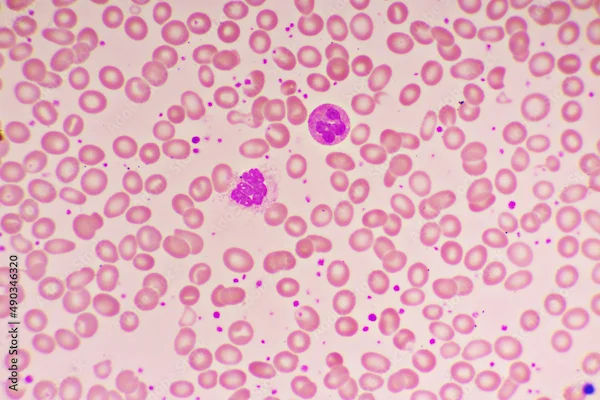Penile Cancer Overview: Symptoms and Treatment
Know about the penile cancer overview, symptoms, causes, diagnosis, treatment and management. Learn when to seek medical help and more.

Written by Dr. M L Ezhilarasan
Reviewed by Dr. Dhankecha Mayank Dineshbhai MBBS
Last updated on 22nd Aug, 2025

Introduction
Facing a cancer diagnosis can be overwhelming, but understanding the condition is the first step toward managing it effectively. Penile cancer, though rare, is a serious condition that affects the tissues of the penis. Early detection and treatment can significantly improve outcomes.
This article will guide you through the symptoms, causes, risk factors, and available treatments in simple, easy-to-understand language.
What Is Penile Cancer?
Penile cancer occurs when abnormal cells grow uncontrollably in the tissues of the penis. It most commonly affects the foreskin (in uncircumcised men) or the head of the penis (glans). While rare, early detection is crucial for successful treatment.
Consult a Urologist for Personalised Advice
Symptoms of Penile Cancer
Recognising the signs early can make a big difference. Common symptoms include:
- A lump, sore, or ulcer on the penis that doesn’t heal.
- Changes in skin colour (redness, darkening, or thickening).
- Bleeding or discharge from the penis.
- Persistent rash or irritation that doesn’t improve with creams.
- Pain or discomfort in the penis.
- Swollen lymph nodes in the groin (a sign of possible spread).
If you notice any of these symptoms, consult a doctor immediately. Early treatment can prevent complications.
Causes and Risk Factors
The exact cause of penile cancer is unclear, but several factors increase the risk:
1. HPV (Human Papillomavirus) Infection – Certain strains of HPV are linked to penile cancer.
2. Poor Hygiene – Uncircumcised men with inadequate cleaning under the foreskin are at higher risk.
3. Smoking – Tobacco use increases the likelihood of developing penile cancer.
4. Phimosis – A condition where the foreskin cannot be pulled back, leading to chronic inflammation.
5. Age – Men over 50 are more commonly affected.
6. Weakened Immune System – Conditions like HIV/AIDS increase vulnerability.
How Is Penile Cancer Diagnosed?
If your doctor suspects penile cancer, they may recommend:
- Physical Examination – Checking for lumps, sores, or skin changes.
- Biopsy – Removing a small tissue sample for lab testing.
- Imaging Tests (MRI, CT, or Ultrasound) – To check if cancer has spread.
Early diagnosis improves treatment success, so don’t delay seeing a doctor if you notice symptoms.
Treatment Options
Treatment depends on the cancer’s stage and location. Common approaches include:
1. Surgery – Removing the tumour, part of the penis (partial penectomy), or, in severe cases, the entire penis (total penectomy).
2. Radiation Therapy – Using high-energy beams to kill cancer cells.
3. Chemotherapy – Drugs to destroy cancer cells, often used if cancer has spread.
4. Laser Therapy – For very early-stage cancers.
5. Topical Treatments – Creams for superficial cancers.
Doctors aim to preserve as much function and appearance as possible while ensuring complete cancer removal.
Living with Penile Cancer: Tips for Recovery and Prevention
If you’ve been diagnosed or want to reduce your risk, consider these steps:
1. Maintain Good Hygiene
- Wash the penis daily, especially under the foreskin (if uncircumcised).
- Keep the area dry to prevent infections.
2. Quit Smoking
- Smoking increases cancer risk; quitting improves overall health.
3. Get Vaccinated Against HPV
The HPV vaccine can protect against cancer-causing strains.
4. Regular Check-ups
- If you’ve had penile cancer, follow-up visits are crucial to monitor recurrence.
5. Emotional Support
- A cancer diagnosis can be distressing. Seek counselling or support groups to cope emotionally.
When to See a Doctor?
If you notice any unusual changes in your penis, such as sores, lumps, or persistent rashes, don’t ignore them. Early medical attention can make treatment easier and more effective.
Final Thoughts
Penile cancer is rare but treatable when caught early. Knowing the symptoms, risk factors, and treatment options empowers you to take action. If you notice any concerning changes, consult a doctor without delay. With proper care and medical support, recovery is possible.
Consult a Urologist for Personalised Advice
Consult a Urologist for Personalised Advice
Dr Debanga Sarma
Urologist
10 Years • MBBS, MS (GENERAL SURGERY)M.Ch (UROLOGY)
Guwahati
Apollo Clinic Guwahati, Assam, Guwahati
Dr S K Singhanina
Urologist
25 Years • MBBS/MS/DNB AND MCH UROLOGY
Guwahati
Apollo Clinic Guwahati, Assam, Guwahati

Dr. Pradeep Champawat
Urologist
10 Years • MBBS, MS, DNB Urology
Delhi
Apollo Hospitals Indraprastha, Delhi
(150+ Patients)

Dr. Pavan Kumar S K
Urologist
11 Years • MBBS, MS , Mch( Urology) DNB (Urology)
Bengaluru
Apollo Clinic, JP nagar, Bengaluru

Dr. Ramesh H
Urologist
16 Years • MBBS, MS , Mch( Urology)
Bengaluru
Apollo Clinic, JP nagar, Bengaluru
Consult a Urologist for Personalised Advice
Dr Debanga Sarma
Urologist
10 Years • MBBS, MS (GENERAL SURGERY)M.Ch (UROLOGY)
Guwahati
Apollo Clinic Guwahati, Assam, Guwahati
Dr S K Singhanina
Urologist
25 Years • MBBS/MS/DNB AND MCH UROLOGY
Guwahati
Apollo Clinic Guwahati, Assam, Guwahati

Dr. Pradeep Champawat
Urologist
10 Years • MBBS, MS, DNB Urology
Delhi
Apollo Hospitals Indraprastha, Delhi
(150+ Patients)

Dr. Pavan Kumar S K
Urologist
11 Years • MBBS, MS , Mch( Urology) DNB (Urology)
Bengaluru
Apollo Clinic, JP nagar, Bengaluru

Dr. Ramesh H
Urologist
16 Years • MBBS, MS , Mch( Urology)
Bengaluru
Apollo Clinic, JP nagar, Bengaluru




